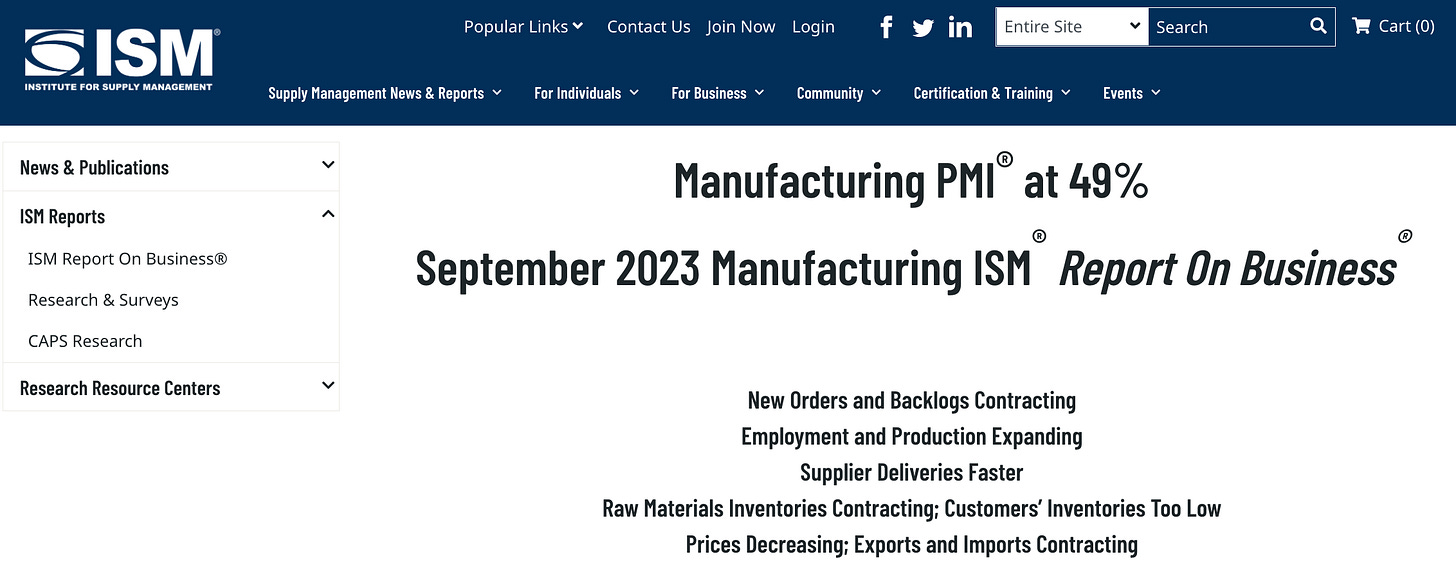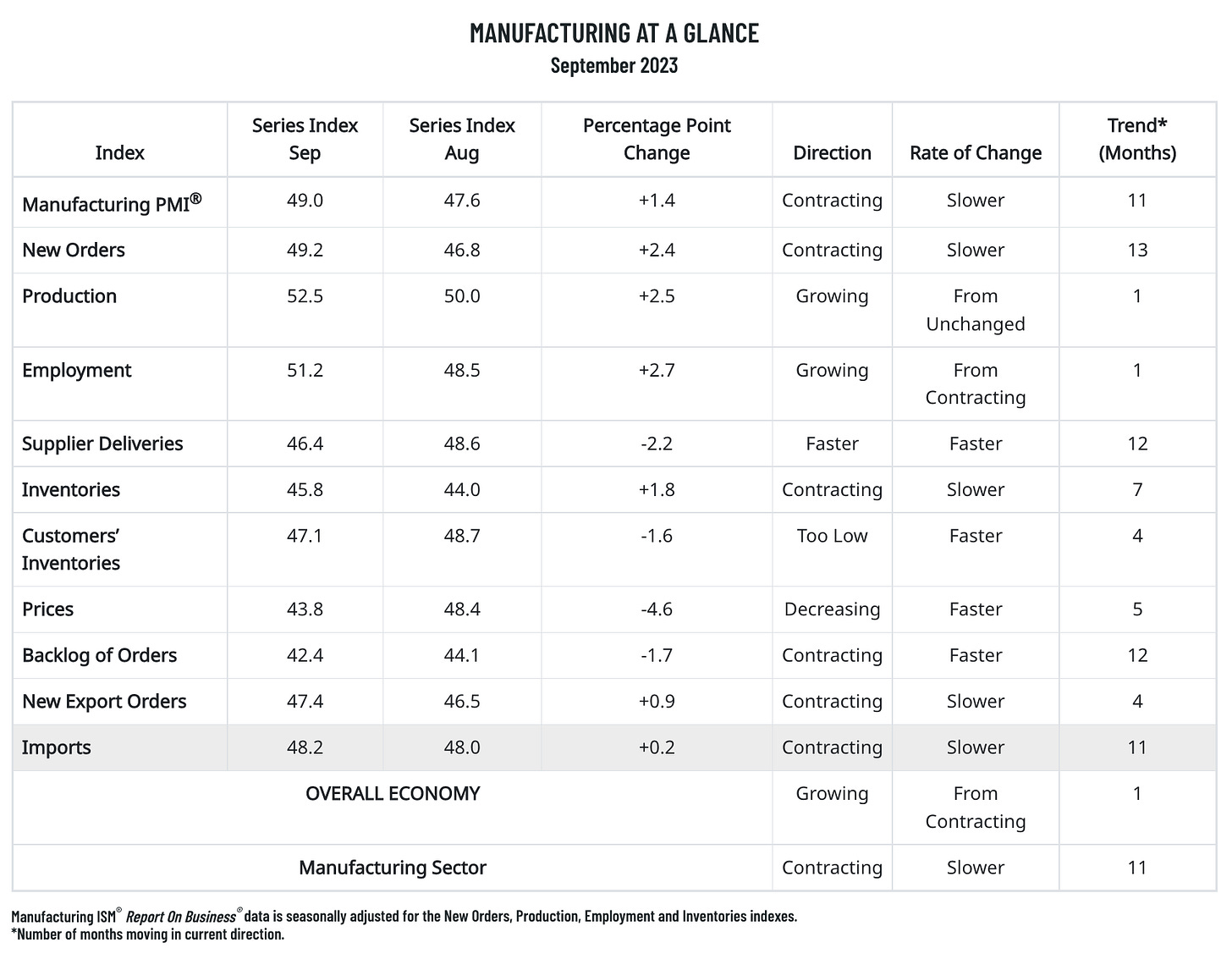What does a ISM Manufacturing PMI 49.0 mean?
Institute of Supply Management released the Manufacturing PMI last week.
From the article, it was quoted:
Economic activity in the manufacturing sector contracted in September for the 11th consecutive month following a 28-month period of growth, say the nation's supply executives in the latest Manufacturing ISM® Report On Business®.
Of the six biggest manufacturing industries, two — Food, Beverage & Tobacco Products; and Petroleum & Coal Products — registered growth in September.
The five manufacturing industries that reported growth in September are: Nonmetallic Mineral Products; Food, Beverage & Tobacco Products; Textile Mills; Primary Metals; and Petroleum & Coal Products. The 11 industries reporting contraction in September — in the following order — are: Printing & Related Support Activities; Furniture & Related Products; Plastics & Rubber Products; Paper Products; Fabricated Metal Products; Wood Products; Computer & Electronic Products; Machinery; Electrical Equipment, Appliances & Components; Chemical Products; and Transportation Equipment.
Observations from the Sep 2023 article:
Manufacturing PMI is a score where a number above 50 implies growth and contract for a score less than 50. Thus, Sep 2023 Manufacturing is contracting.
Manufacturing PMI is made up of various components that include new orders, production, employment, supplier deliveries, inventories, customers’ inventories, price backlog of orders, new export orders and export.
From the table above, the manufacturing sector is seeing growth in production and employment.
However, the manufacturing sector is seeing a decline in new orders, supplier deliveries, inventories, supplier deliveries, customers’ inventories, prices, backlog of orders, new export orders and imports.
In conclusion, ISM concludes that Sep 2023 data implies a growing overall economy and a contracting manufacturing sector.
This the the update pertaining buying policy:
The average commitment lead time for Capital Expenditures in September was 172 days, an increase of two days compared to August. Average lead time in September for Production Materials was 84 days, a decrease of three days. Average lead time for Maintenance, Repair and Operating (MRO) Supplies was 43 days, an increase of one day compared to August.
Conclusion
The Manufacturing PMI is an important reference for the health of the Manufacturing sector. This article is based on the report from ISM and attempts to look into the manufacturing sector in detail to understand the factors leading to the expansion and contraction of manufacturing.
From the data, it remains worrisome that the Manufacturing PMI has contracted for 11 consecutive months. Both imports and new export orders are in decline.
Let us note that there are other PMI for services and another named “Composite” that is a combination of both products and services.



Comments
Post a Comment